Abstract
Ernst Mach is most closely associated with a positivism that demanded a language of close contact with reality. Mach linked this view with the tradition of the quest for an ideal language in which meaning is a property of a word. Logical positivism and the S-R psychology of the early B. F. Skinner also participated in this ideal-language positivism. In addition, Mach showed an affinity with another tradition—a pragmatic-selectionist tradition—although that tradition and Mach's similarities with it were not as well developed. Mach showed no difficulty in jointly maintaining both of these traditions although they have been regarded as deeply incompatible. When the later Skinner adopted a pragmatic selectionism for his later views on verbal behavior, he rejected his earlier views that were aligned with S-R psychology as well as with logical positivism and its sympathizers. Nevertheless, some statements consistent with “meaning is a property of a word” remained for some time in Skinner's writing.
Keywords: essentialism, Ernst Mach, meaning, positivism, pragmatism, selectionism, B. F. Skinner
Full text
PDF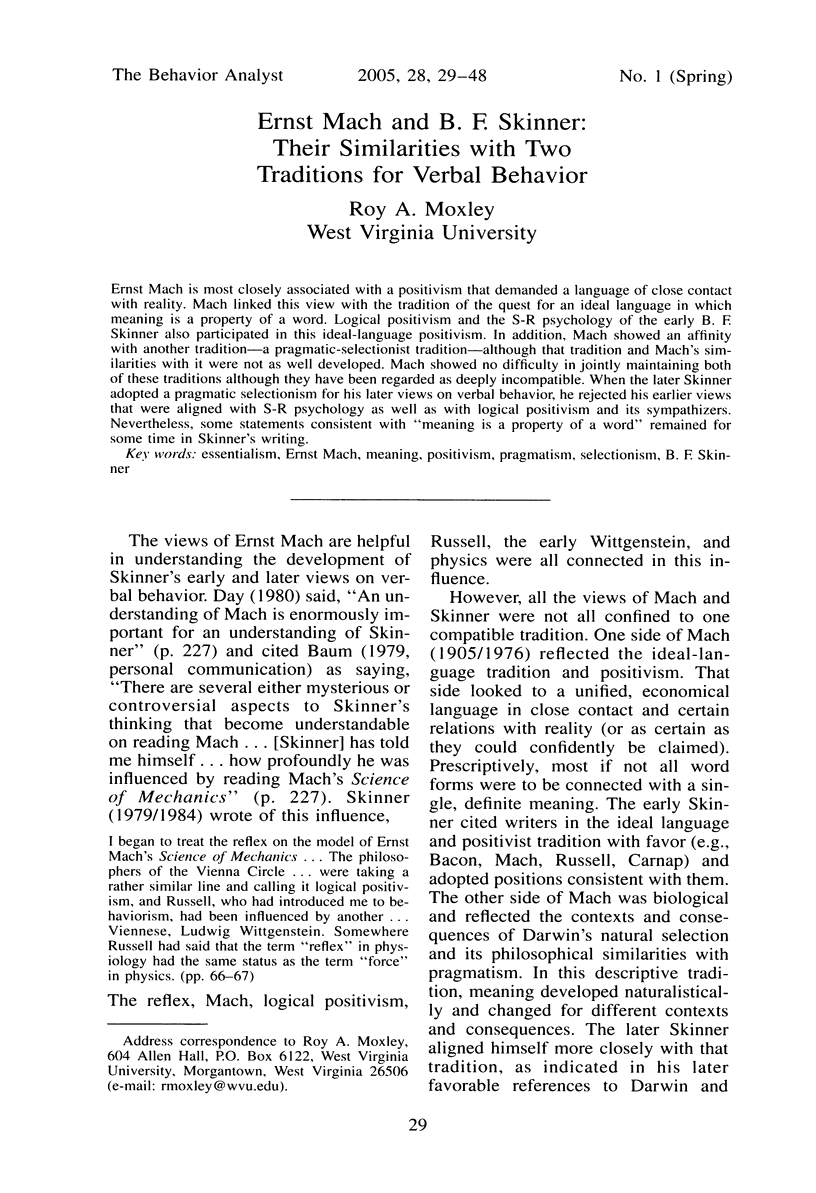
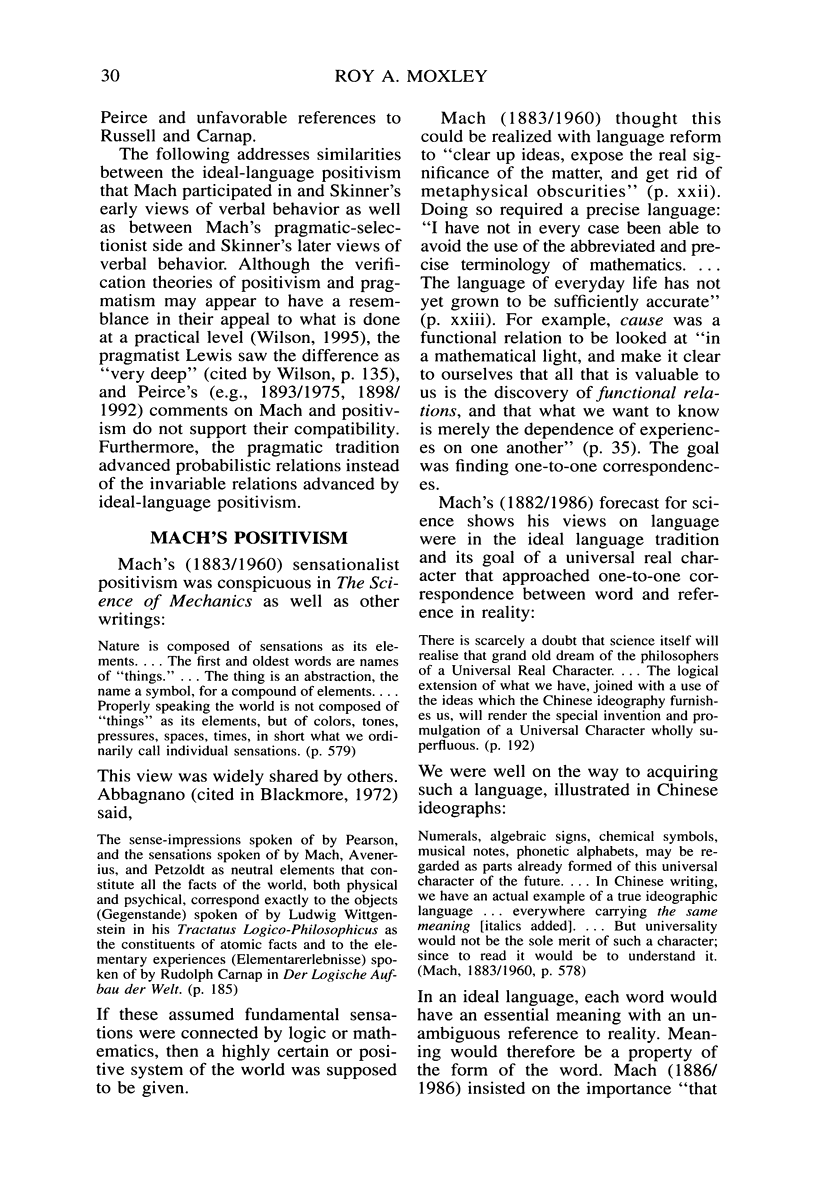
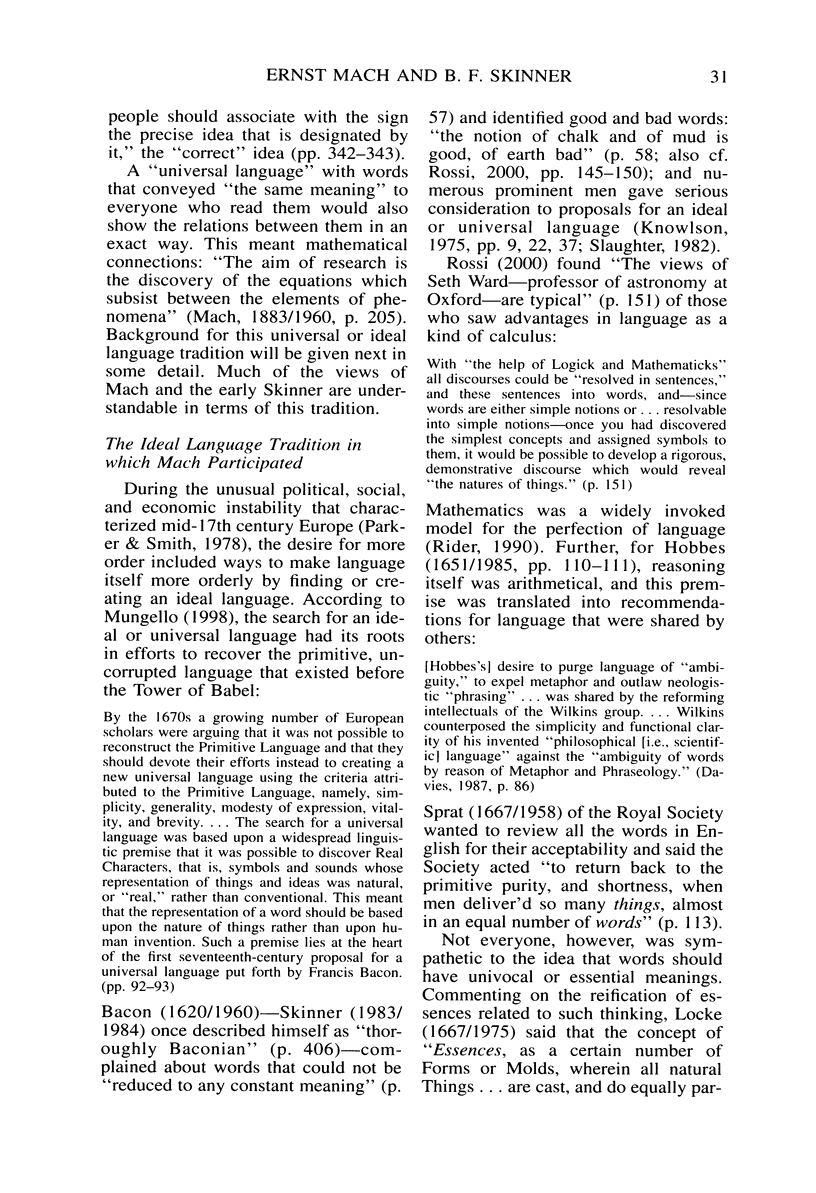
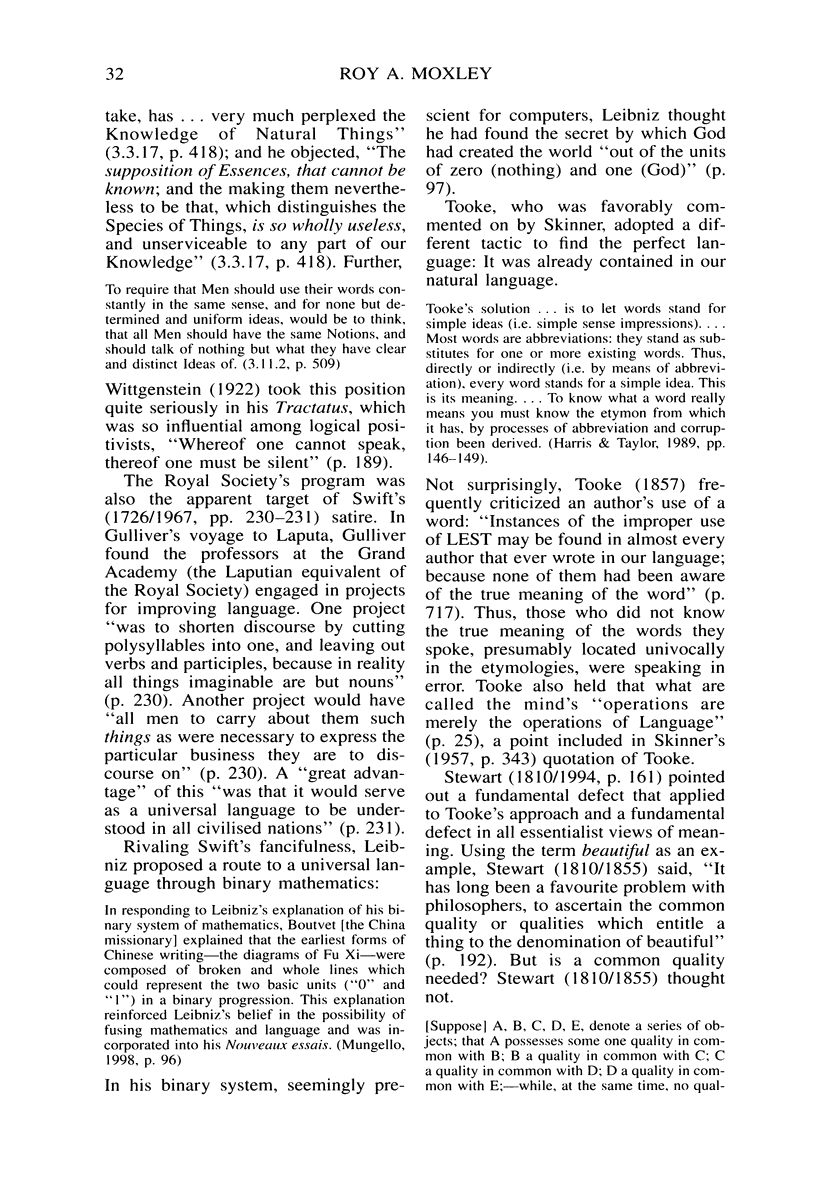
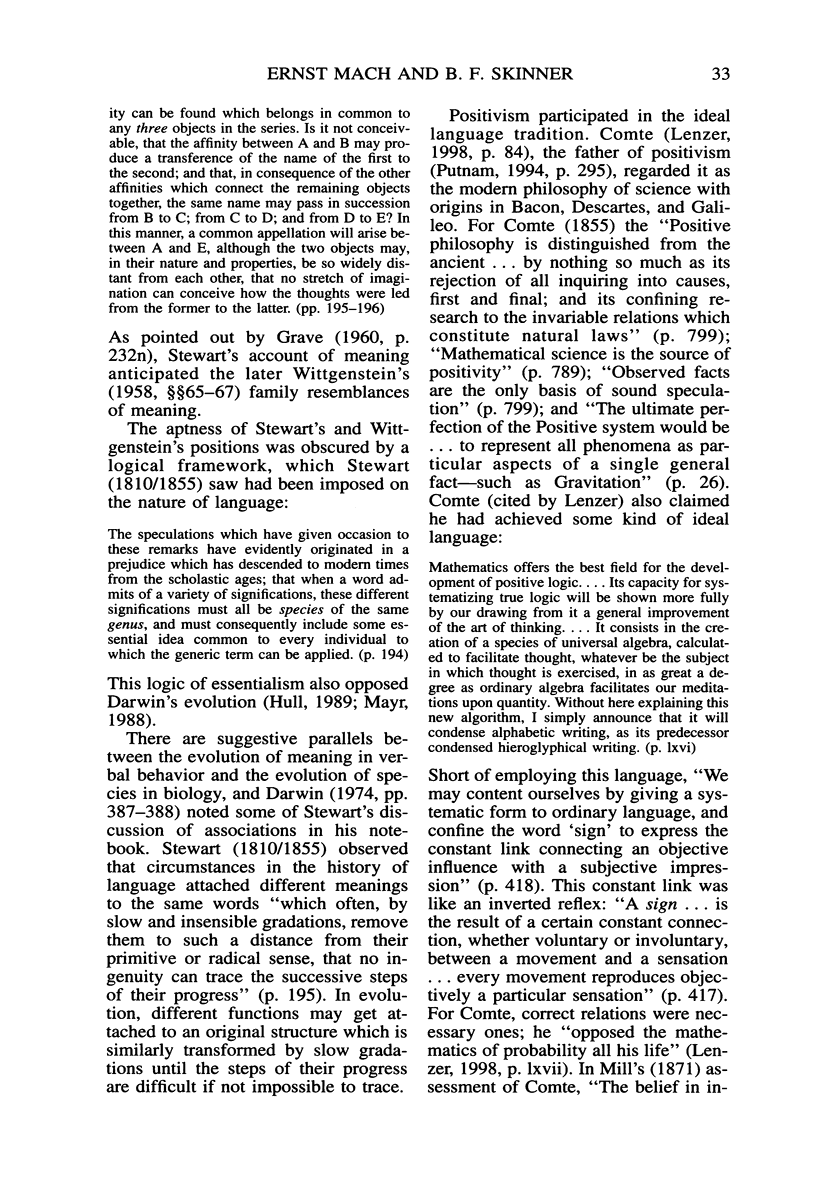
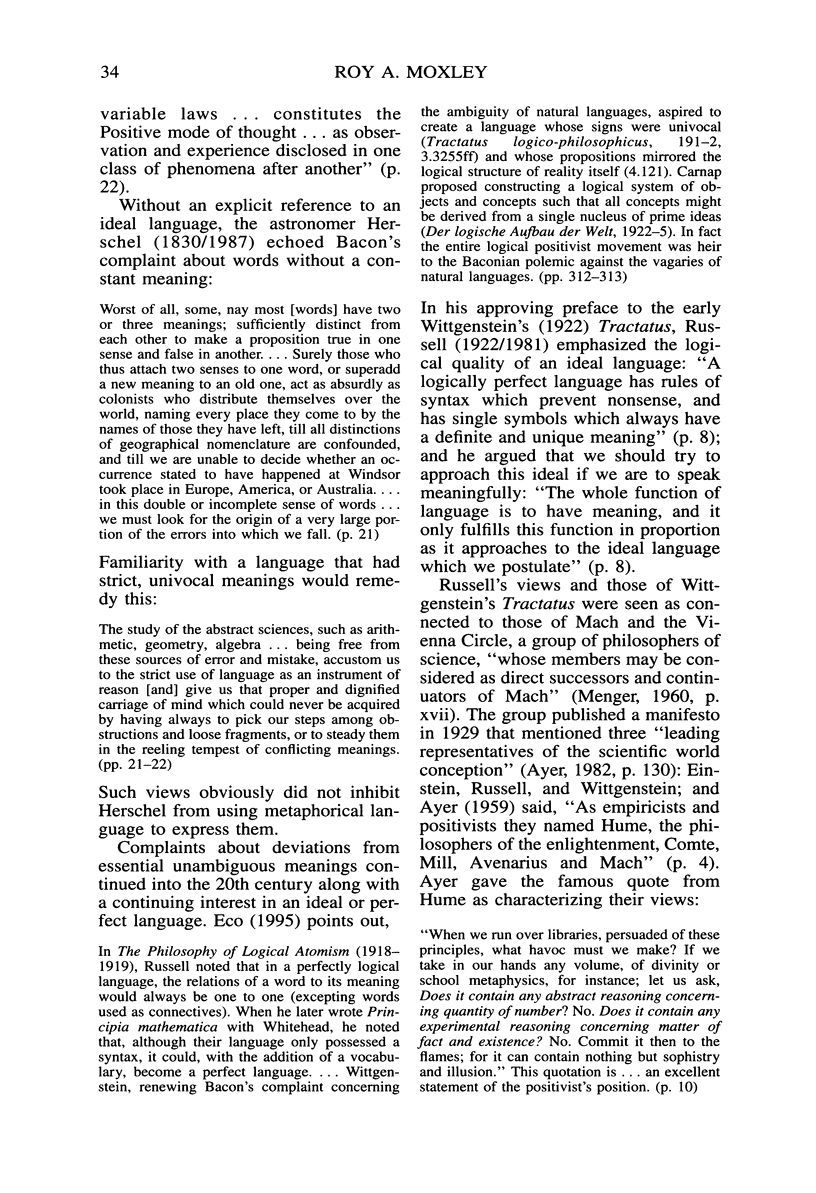
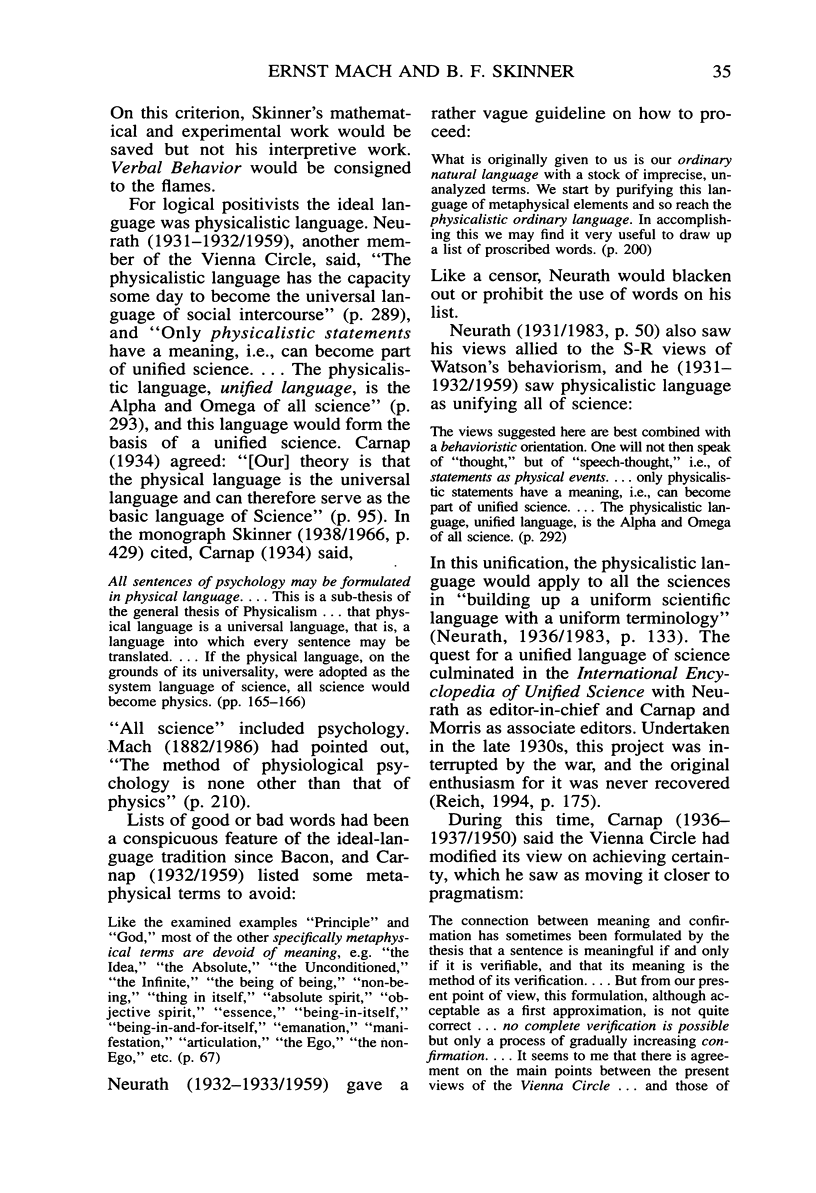
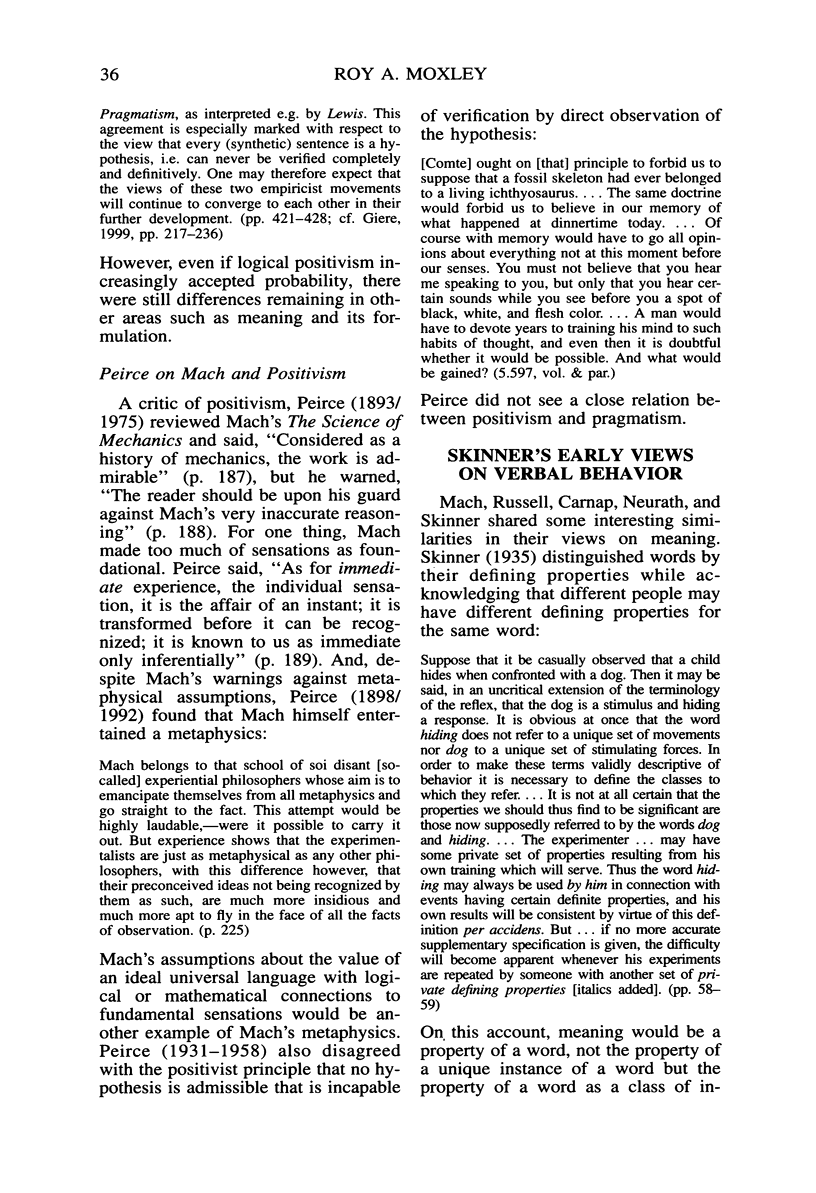
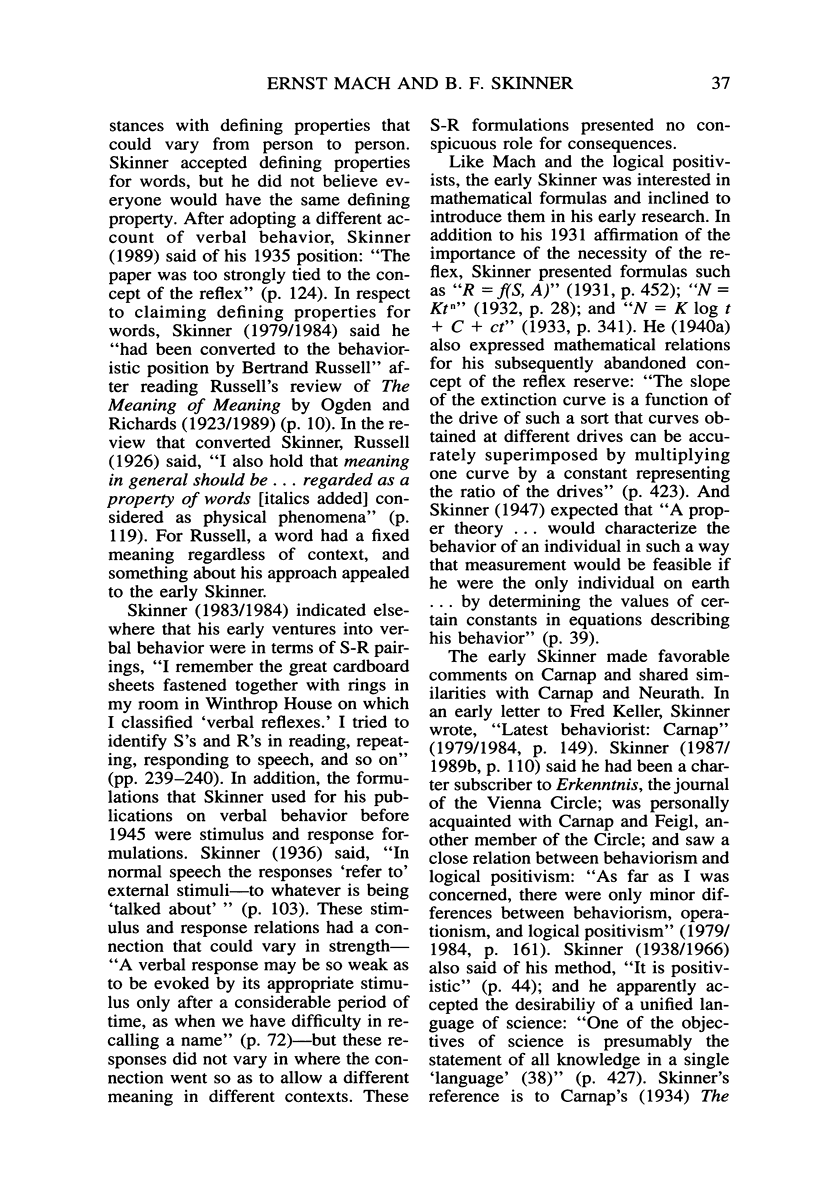
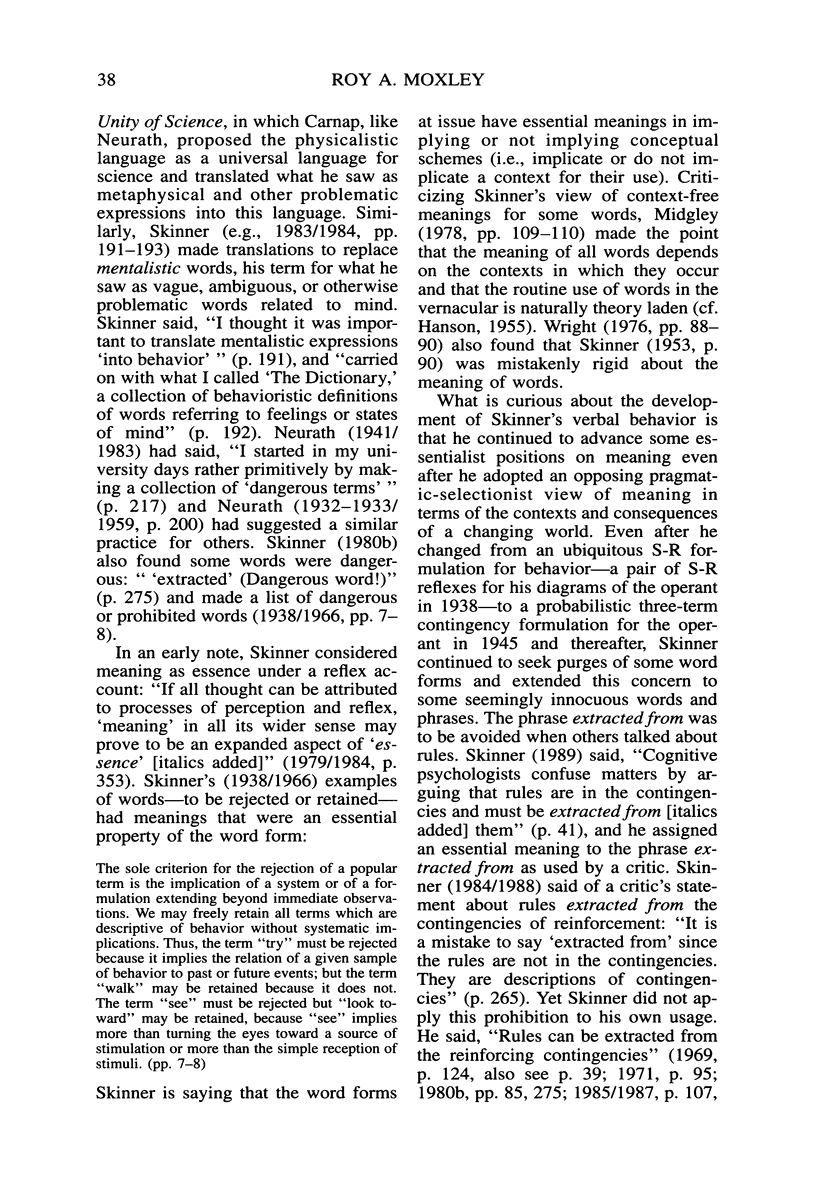
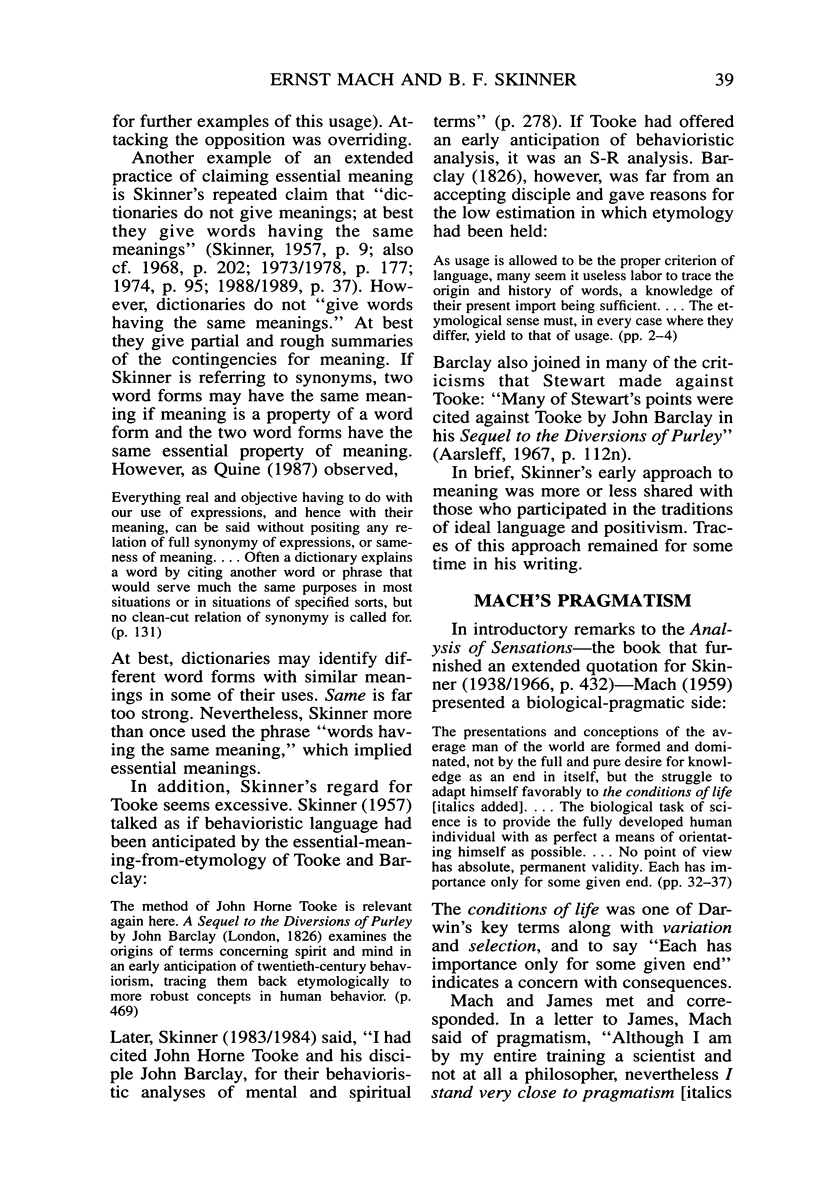
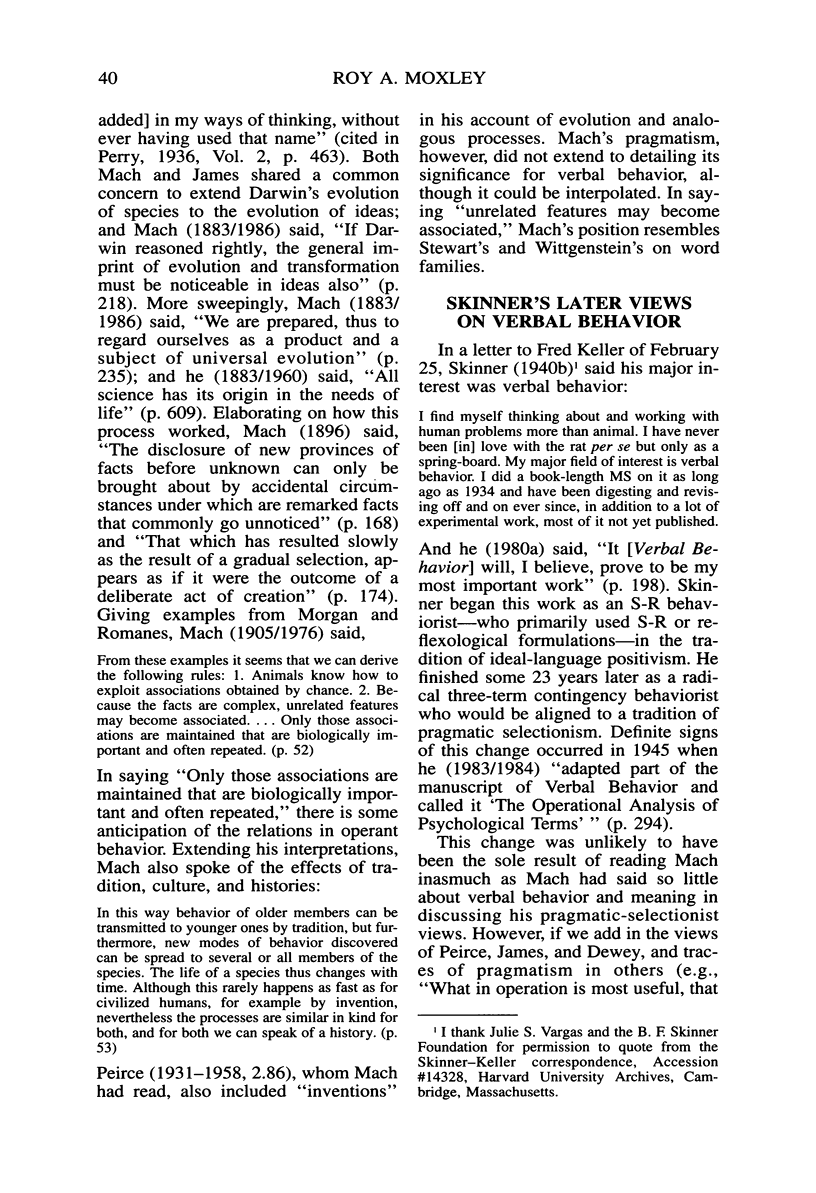
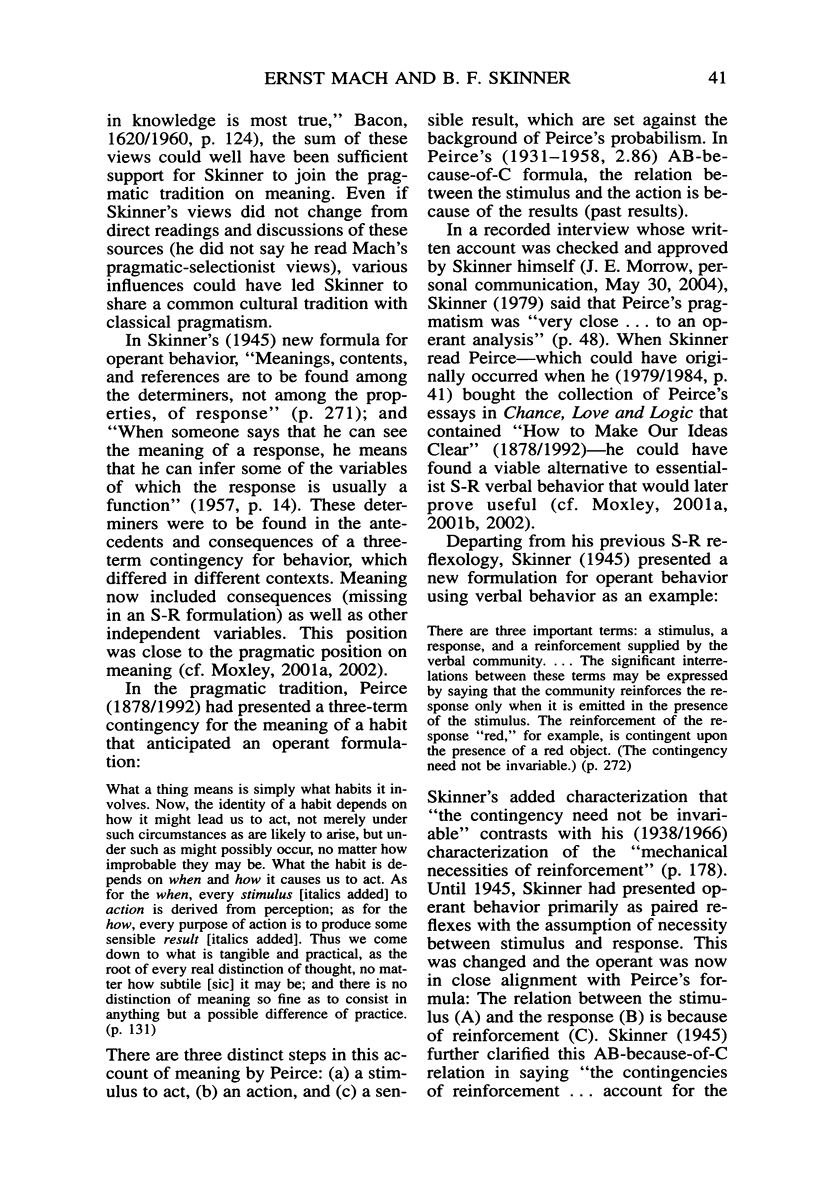
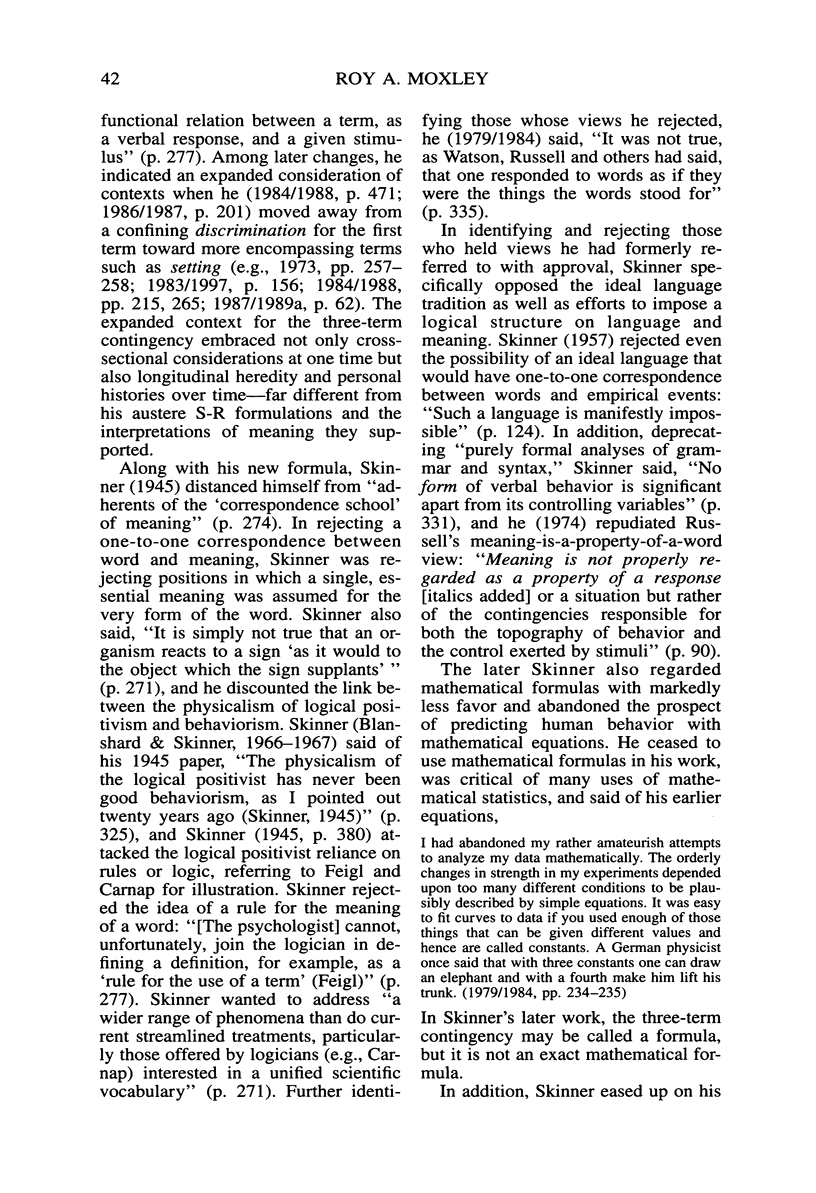
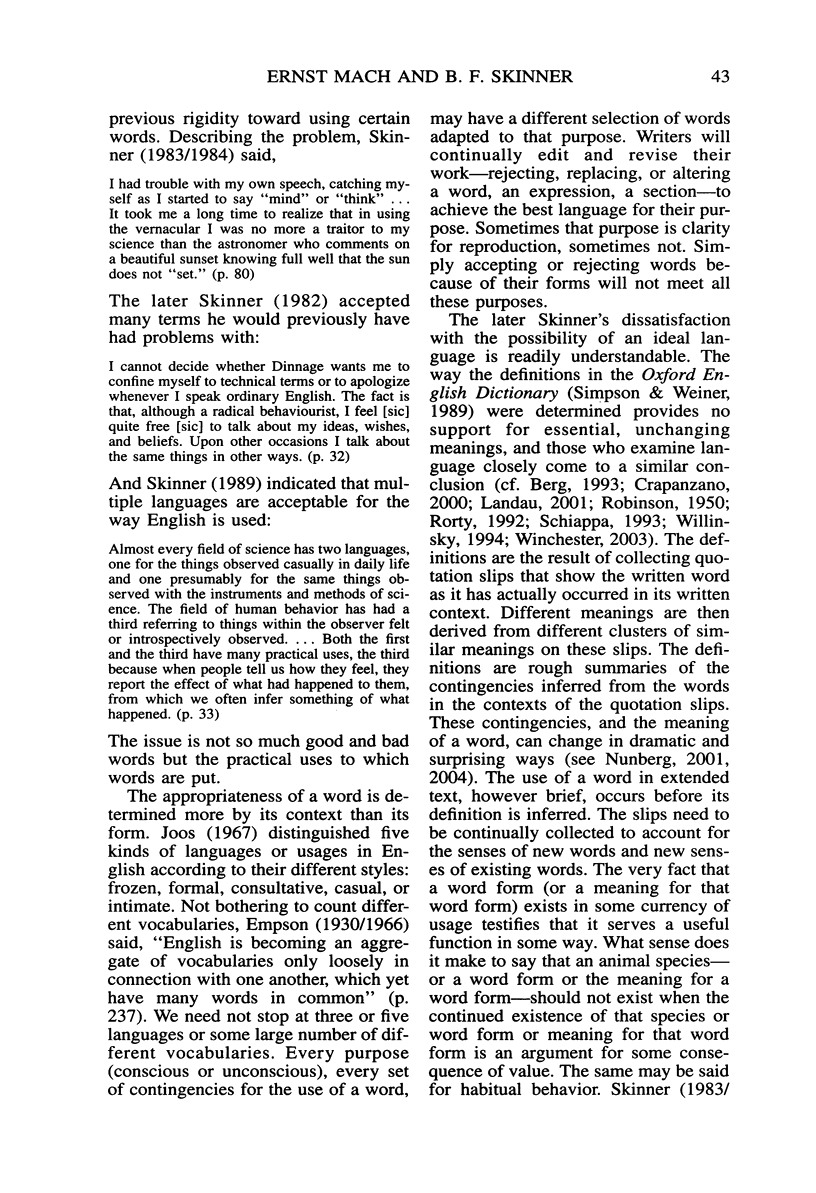
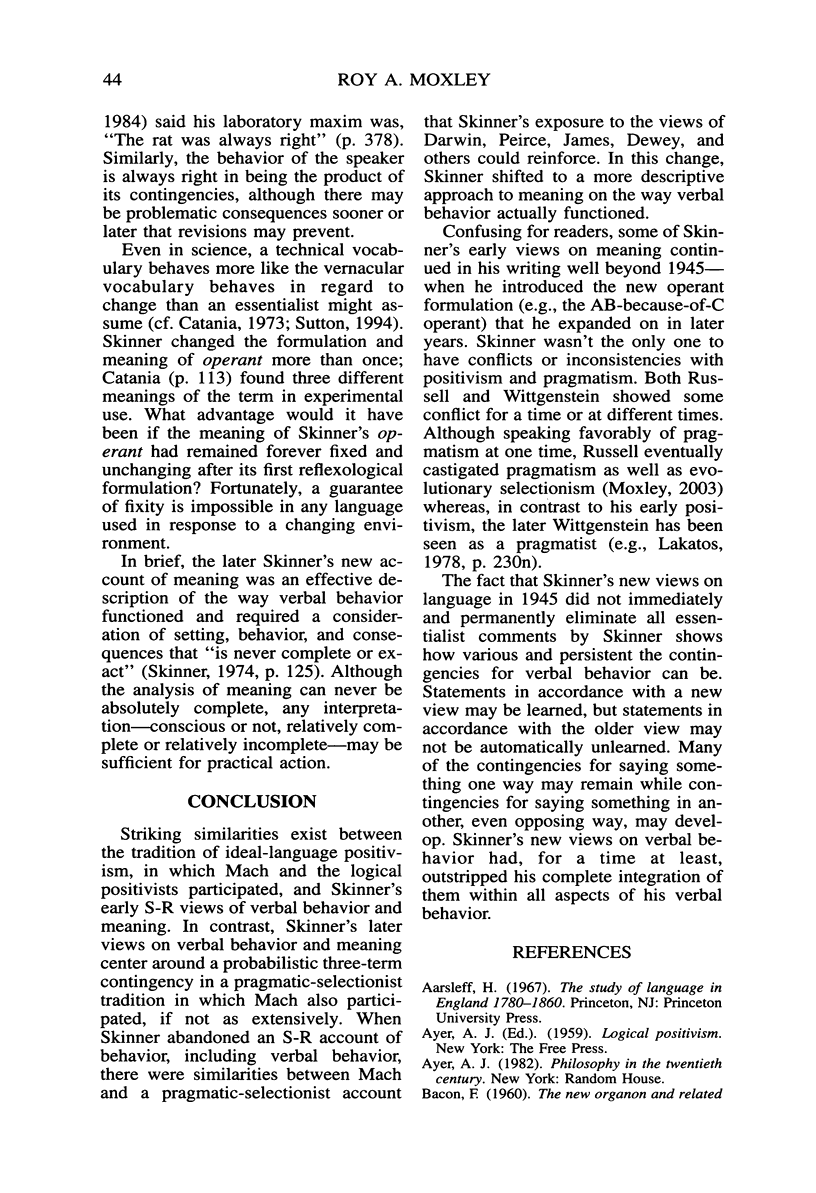
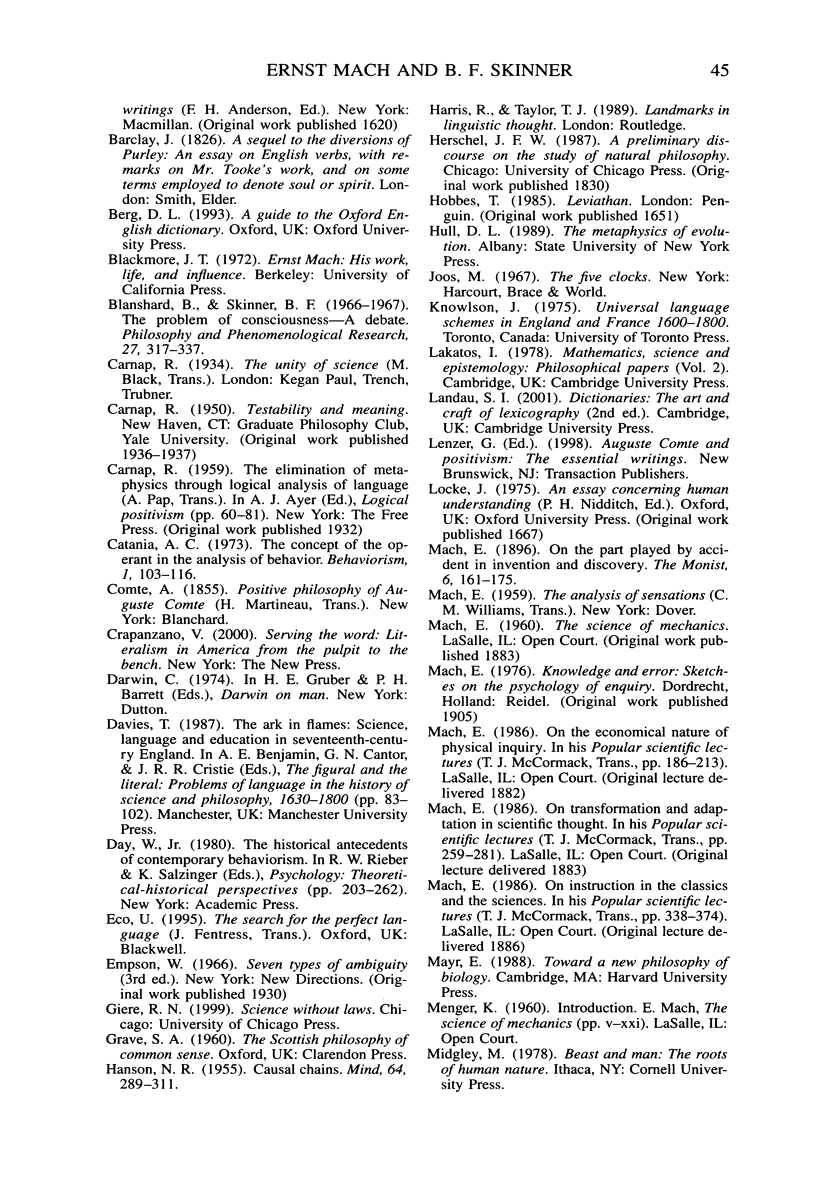
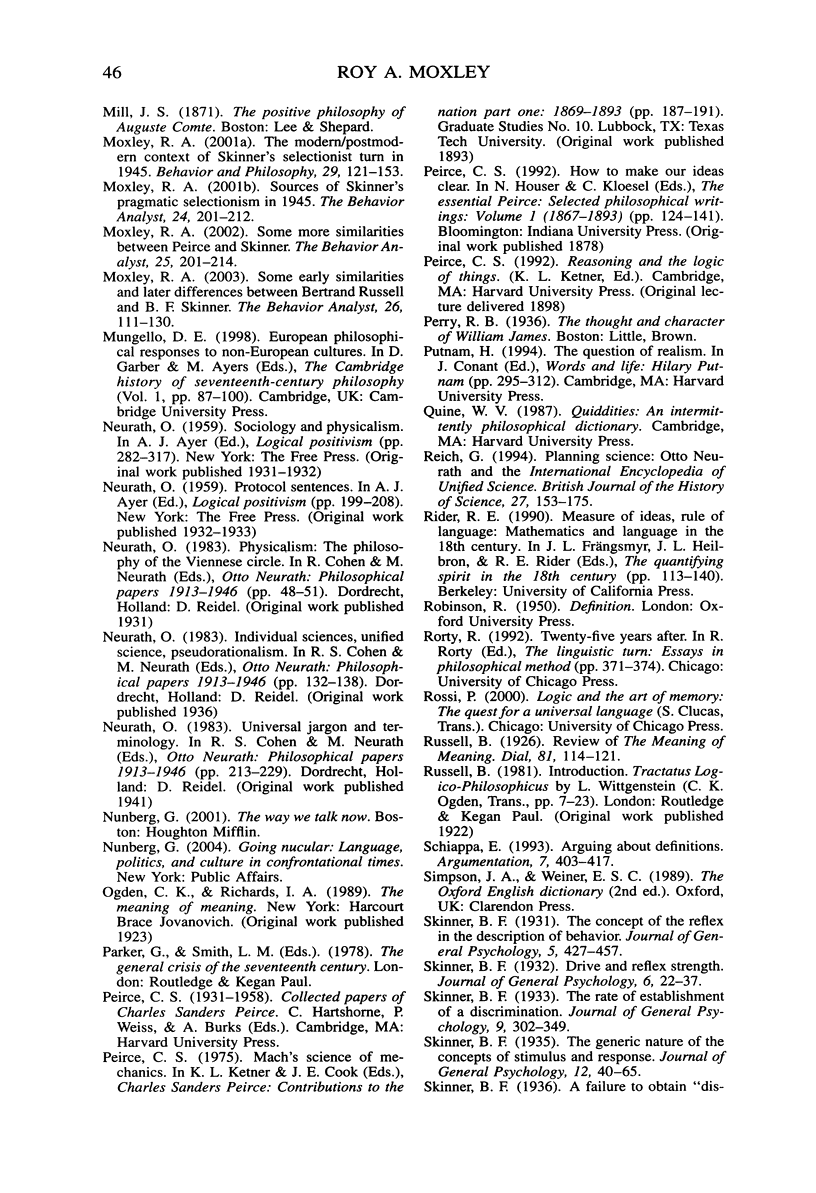
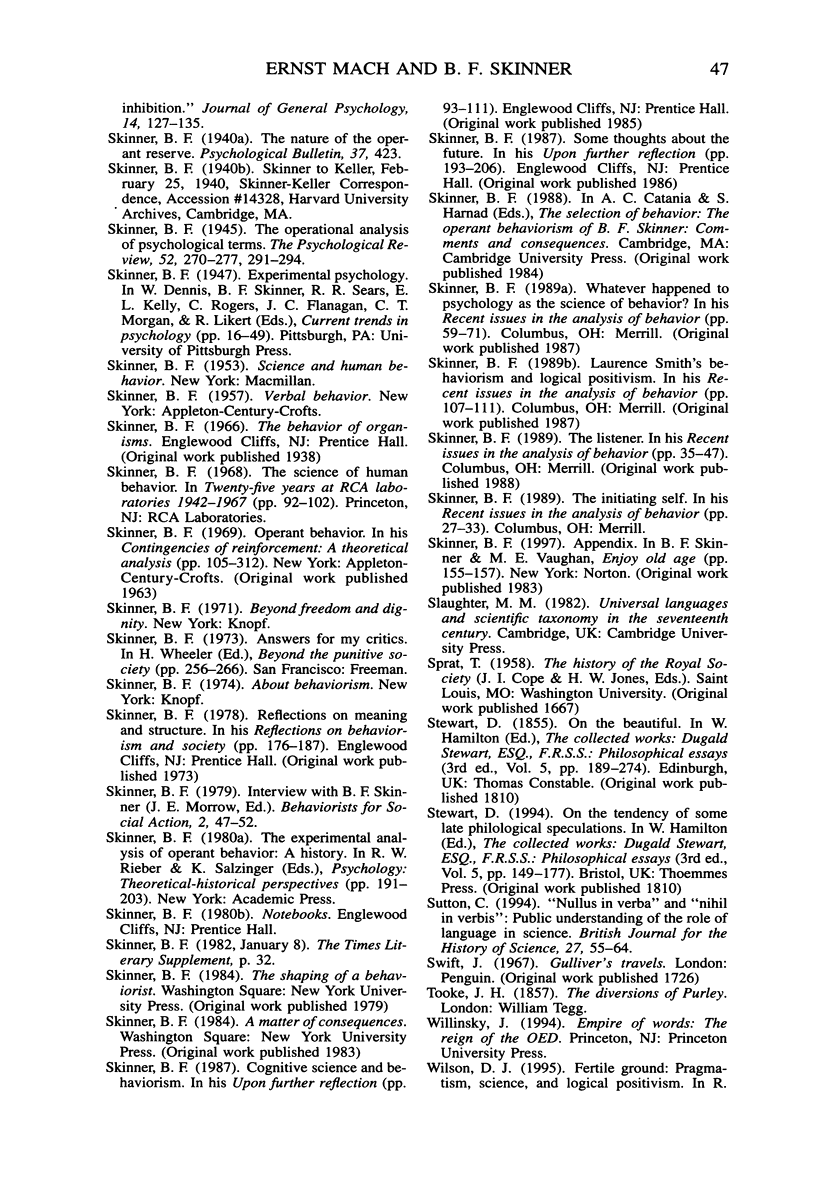
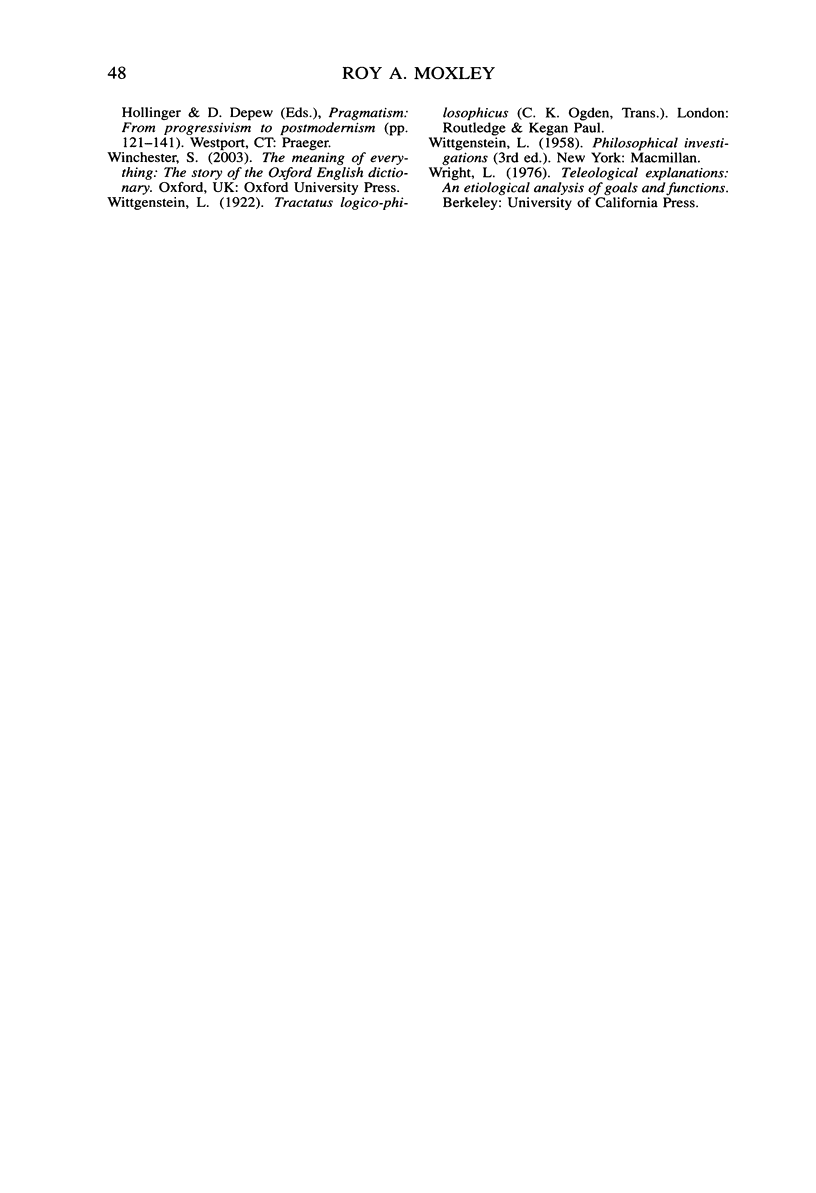
Selected References
These references are in PubMed. This may not be the complete list of references from this article.
- Moxley R. A. Sources for Skinner's pragmatic selectionism in 1945. Behav Anal. 2001 Fall;24(2):201–212. doi: 10.1007/BF03392031. [DOI] [PMC free article] [PubMed] [Google Scholar]
- Moxley Roy A. Some early similarities and later differences between Bertrand Russell and B. F. Skinner. Behav Anal. 2003 Spring;26(1):111–130. doi: 10.1007/BF03392070. [DOI] [PMC free article] [PubMed] [Google Scholar]
- Moxley Roy A. Some more similarities between Peirce and Skinner. Behav Anal. 2002 Fall;25(2):201–214. doi: 10.1007/BF03392058. [DOI] [PMC free article] [PubMed] [Google Scholar]


